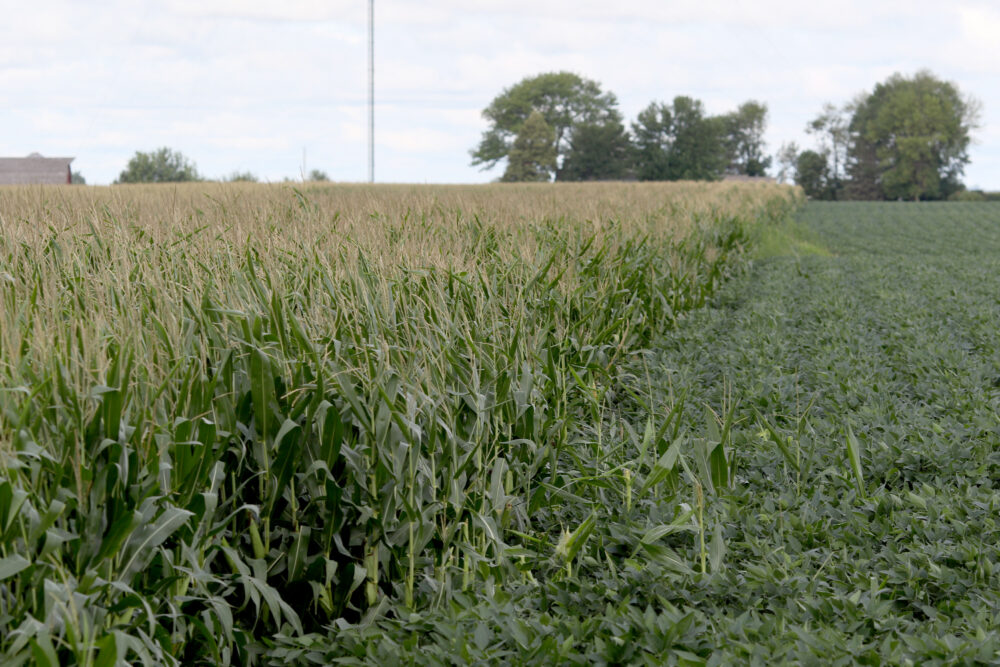The National Corn Growers Association and the American Soybean Association have raised concerns that a tariff-induced trade war with China could significantly impact U.S. farmers. A jointly released study, using 2018 tariff data and Donald Trump’s economic plans, indicates potential severe declines in soybean and corn exports to China.
The study’s worst-case scenario shows soybean exports could drop nearly 52%, while corn exports might plummet by 84% from expected levels. Agricultural representatives, including Minnesota and Wisconsin Farmers Unions, the Minnesota Soybean Growers Association, and former Iowa Secretary of Agriculture Patty Judge, convened in a webinar to discuss the study’s implications. Many urged farmers and rural voters against supporting Trump due to his proposed tariffs. Judge emphasized the precarious position these tariffs could place on the heartland’s farmers.
The study, released on October 15, was conducted by World Agricultural Economic and Environmental Services. It projects that a new trade war would cause immediate declines in U.S. corn and soybean exports, with Argentina and Brazil filling the gap. The trade study highlights that many tariffs from the 2018 U.S.-China trade war remain, though China has provided annual waivers to ease tariff costs. However, these tariffs could quickly be reinstated.
The study examined scenarios where China reinstates 2018 tariffs and another involving a 60% tariff on U.S. goods, reflecting Trump’s proposal for Chinese goods. This could lead to an annual production value loss between $3.6 billion to $5.9 billion for soybean farmers and $0.9 billion to $1.4 billion for corn farmers.
‘Still rebuilding’
Agricultural representatives on the webinar frequently discussed the “devastating effects” of the 2018 trade war on farmers and rural economies. The previous administration acknowledged these impacts, providing $23 billion in relief to affected farmers. Denny Wolff, former Pennsylvania Secretary of Agriculture, described the “double whammy” farmers faced with increased import costs and decreased export values. Minnesota Farmers Union President Gary Wertish noted the agriculture economy is still rebuilding from 2018’s challenges. Judge warned that new tariffs could be catastrophic for Iowa due to its significant agricultural output.
According to the Office of the U.S. Trade Representative, Iowa is the second-largest agricultural export state, with $16.5 billion in exports in 2022. Brent Swart, Iowa Soybean Association President, stressed the importance of trade, stating that many farmers face financial pressure since the U.S.-China trade dispute began. A Trump campaign spokesperson cited the United States-Mexico-Canada Trade Agreement and other trade deals as beneficial to agriculture. They also criticized Biden-Harris climate policies for increasing diesel prices and imposing stricter water regulations.
Most webinar participants supported Vice President Kamala Harris and Minnesota Gov. Tim Walz. Judge expressed confidence in their understanding of agriculture, stating, “Governor Walz clearly understands agriculture. He is with us.”





